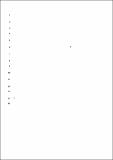Por favor, use este identificador para citar o enlazar a este item:
http://hdl.handle.net/10261/216650COMPARTIR / EXPORTAR:
 SHARE
BASE SHARE
BASE
|
|
| Visualizar otros formatos: MARC | Dublin Core | RDF | ORE | MODS | METS | DIDL | DATACITE | |

| Título: | Invited review: Role of rumen biohydrogenation intermediates and rumen microbes in diet-induced milk fat depression: An update |
Autor: | Dewanckele, L.; Toral, Pablo G. CSIC ORCID ; Vlaeminck, B.; Fievez, V. | Palabras clave: | Biohydrogenating bacteria Biohydrogenation theory Mammary lipogenesis Ruminant Trans-10 shift |
Fecha de publicación: | 2020 | Editor: | American Dairy Science Association | Citación: | Journal of Dairy Science, 103 (9): 7655-7681 (2020) | Resumen: | To meet the energy requirements of high-yielding dairy cows, grains and fats have increasingly been incorporated in ruminant diets. Moreover, lipid supplements have been included in ruminant diets under experimental or practical conditions to increase the concentrations of bioactive n-3 fatty acids and conjugated linoleic acids in milk and meat. Nevertheless, those feeding practices have dramatically increased the incidence of milk fat depression in dairy cattle. Although induction of milk fat depression may be a management tool, most often, diet-induced milk fat depression is unintended and associated with a direct economic loss. In this review, we give an update on the role of fatty acids, particularly originating from rumen biohydrogenation, as well as of rumen microbes in diet-induced milk fat depression. Although this syndrome seems to be multi-etiological, the best-known causal factor remains the shift in rumen biohydrogenation pathway from the formation of mainly trans-11 intermediates toward greater accumulation of trans-10 intermediates, referred to as the trans-11 to trans-10 shift. The microbial etiology of this trans-11 to trans-10 shift is not well understood yet and it seems that unraveling the microbial mechanisms of diet-induced milk fat depression is challenging. Potential strategies to avoid diet-induced milk fat depression are supplementation with rumen stabilizers, selection toward more tolerant animals, tailored management of cows at risk, selection toward more efficient fiberdigesting cows, or feeding less concentrates and grains | Descripción: | 27 páginas, 6 figuras, 2 tablas. | Versión del editor: | http://dx.doi.org/10.3168/jds.2019-17662 | URI: | http://hdl.handle.net/10261/216650 | ISSN: | 0022-0302 | E-ISSN: | 1525-3198 |
| Aparece en las colecciones: | (IGM) Artículos |
Ficheros en este ítem:
| Fichero | Descripción | Tamaño | Formato | |
|---|---|---|---|---|
| Dewanckele et al_Rev.pdf | Artículo principal | 1,48 MB | Adobe PDF |  Visualizar/Abrir |
CORE Recommender
Page view(s)
171
checked on 19-abr-2024
Download(s)
76
checked on 19-abr-2024
Google ScholarTM
Check
Este item está licenciado bajo una Licencia Creative Commons

